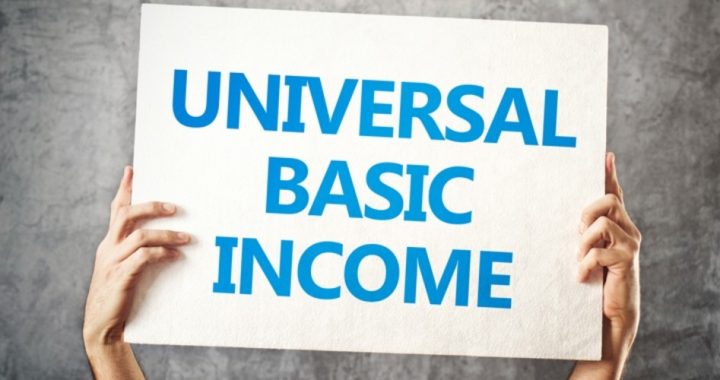
Beginning in 2019, 100 residents of Stockton, California, will be receiving a “basic income” from the city government. This “pilot program” is the first of its kind in the United States and is akin to similar “universal basic income” programs currently and previously carried out around the world.
Here’s a summary of the Stockton situation as described by CBS13 TV in Sacramento. I’ve chosen to quote the details of the plan from local media because I want readers to appreciate that this is neither satire nor some attempt to exaggerate the facts to serve an editorial end:
A team of independent researchers will pick 100 people to receive the money. The purpose is to study how an extra $500 a month impacts people’s health and stress level. Researchers are also looking to see if people feel financially secure.
“Around this country, especially in communities like Stockton, people are working incredibly hard and falling further and further behind. We have people in our community that work two or three jobs, we have people that are working and still can’t pay rent,” said Mayor Michael Tubbs.
The researchers will also have a comparison group as part of the program. It consists of 200 additional people who will get a $20 gift card for filling out surveys and provide feedback.
“People who are working incredibly hard are smart and they don’t have money [not] because they are not good with money, they don’t have money because jobs aren’t paying enough for folks to live and survive. We believe something as small as $500 a month can make a world of difference,” he said.
There is so much wrong with this plan politically (assuming that the concepts of “consent of the governed” and “republican government” are still believed in California), but respectable economists have pointed out several pecuniary problems, as well.
In an article from 2016 assessing the “lunacy” of the “universal basic income” (UBI) proposal, Nick Giambruno laments, “It’s just a matter of time before the idea gains traction in the U.S.”
Welcome to the future, Nick!
Giambruno lists a few European efforts to institute a UBI:
Finland wants to pay its citizens around $1,000 a month.
The Netherlands and the U.K. have also proposed dishing out free money.
In Switzerland, there’s a proposal to hand out around $2,800 a month to everyone. This one is surprisng since the Swiss are generally sensible about money.
Needless to say, the Swiss overwhelmingly voted their UBI proposal down in a referendum. But Finland was on the cutting edge of the forced charity (yes, I know, a logical impossibility) when in 2017 it initiated its version of the UBI. The government of Finland doled out €560 (about $637) a month to 2,000 jobless citizens chosen randomly. The recipients were subjected to no minimum requirements to qualify for the “free” money.
Mind you, the average income tax rate in Finland is north of 51 percent. In other words, the “free” money is being taken from those who worked for it and given to those who did nothing other than have a pulse. Where I come from, that’s called theft.
The Stockton, California, program is described a bit differently. City leaders there claim that this money will be used to help the working poor. Here’s the hard-luck tale of the hard-working, but never-getting-ahead dad, as told by CBS13:
Stockton dad Jose Miranda works hard to save his money, but setting aside a small portion of his paycheck every other week can be a challenge. He says his expenses just keep piling up.
“Kids you know, my kids. I spend money on my kids the most, I think. And rent, in particular. Food and phone,” said Miranda.
Miranda lives in a neighborhood where the median income is at or below 46 thousand dollars.
It’s one of the areas the Stockton Economic Empowerment Demonstration program (SEED) is sending letters to people who may be eligible to get $500 a month with no strings attached.
“I think for the people that really need it, it will be good for them, like a lot of people say groceries, rent, car payment, even if you want to help a family member, anything extra is good to get,” Miranda said.
People who really need it? How about respect for the people who really earned it? If a thief broke into my house and stole $500 worth of money and gave it to a truly needy family, am I supposed to focus on how I “helped” the family receiving the stolen property instead of finding and punishing the man who stole from me? Is this the political philosophy subscribed to in Stockton?
How does it make any sense — economical or moral — for a government (which exists solely for the benefit of the people who formed it) to take money forcibly from the mouth of the worker and put into the hands of anyone else?
Remember, readers, people existed before government. We created government for one reason and one reason only: to make us freer by protecting our property. In fact, government ceases to be government when it converts from being the protector of property to pilferer of it.
In the words of the immortal Algernon Sidney, speaking of the declaration of Christ as recorded in the New Testament to “render unto Caesar, that which is Caesar’s” and the suggestion that these words spoken by the Lord should be interpreted as to meekly surrender all that one has to government, “The question is not whether that which is Caesar’s should be rendered to him, for that is to be done to all men; but who is Caesar, and what doth of right belong to him.”
In light of this statement, there is one very relevant inquiry: How did the city of Stockton gain any amount of moral control over the money (property) of the citizens who will be funding the universal basic income program?
In my opinion, this is where the analysis of this socialist redistribution scheme should end. Government either protects our natural right to own and control property or the people should “alter or abolish” it.
In fairness to the wisdom of economists, I will close with this insight provided by author and economist Charles Hugh Smith, taken from an article posted on his oftwominds.com blog in January 2017:
When work is abundant, there are opportunities for many skill levels, and employers must bid for the most productive, reliable workers. This supports wages and widespread employment.
When the cost of living is low, even low-wage households can not only get by but put a little aside if they are prudent and thrifty.
This may seem obvious, but the conditions required for work to be abundant and the cost of living to be low are not so obvious. For work to be abundant, it must be easy to start a business, easy to operate the new business, easy to make a profit so the business can survive the first few years and easy to hire employees.
All these factors require an environment of low-cost compliance with regulations, low tax rates, low costs of transactions, reasonable transport costs, reasonable cost of money (but not near-zero), reasonable availability of capital for small enterprises, local and national governments that actively seek to smooth the path of new enterprises and existing enterprises seeking to expand, and a transparent marketplace that isn’t dominated by politically dominant cartels and subservient-to-cartels government agencies.
According to the report on CBS13, those chosen to receive the Stockton stipend “have until December 23rd to fill out a consent form online. The 100 people selected will be noticed by mid-January.”
Happy New Year! Unless you’re one of the working people whose pockets will be picked to pay for the “basic income” of the chosen.



